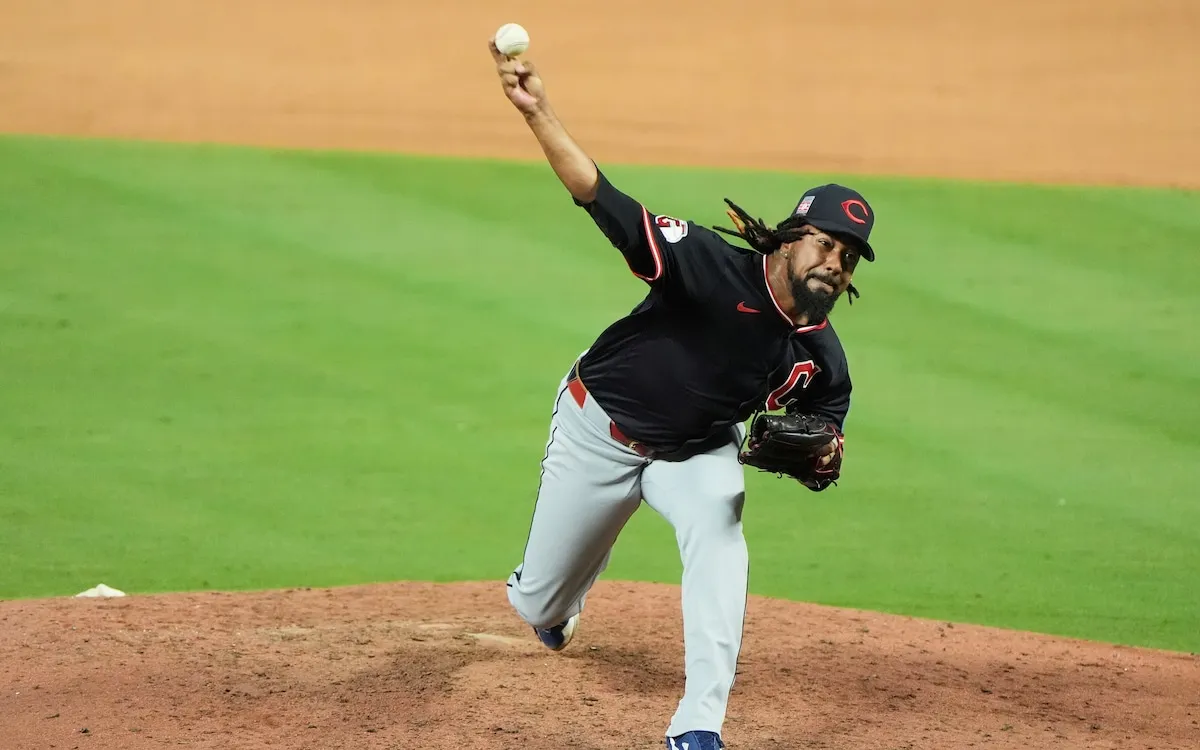
CLEVELAND, Ohio — The Cleveland Guardians pitcher Emmanuel Clase is currently under investigation for sports betting. This revelation comes at a time when sports broadcasts are inundated with gambling advertisements. In fact, a recent study conducted by the Canadian Broadcasting Corporation (CBC) in 2024 found that viewers encountered an average of 2.8 “gambling messages” per minute during a series of NBA and NHL games. This statistic does not even account for the plethora of advertisements during football or baseball games, nor does it include the growing trend of podcast commercials.
The landscape of sports broadcasting is becoming increasingly saturated with gambling promotions. Prominent figures in the sports world, including ESPN personality Pat McAfee, who is backed by FanDuel, further amplify this message. Fans are continuously encouraged to download betting apps like DraftKings and BetMGM, often incentivized with promotional codes such as “BET4FREE.” While many casual bettors may wager small amounts like their beer money without issue, the reality of sports gambling is much more complex. Clase’s situation serves as a stark reminder that he is merely a symptom of a much larger issue.
In a landscape where legal betting is commonplace, the allure of gambling is inescapable. Each day, sports fans are bombarded with messages that normalize this vice. While we may feel sympathy for those who suffer losses, the tendency is to blame them for their misfortunes—akin to telling a sunbather they should have applied more sunscreen. However, unlike sunbathers, many sports gamblers lack the knowledge and tools to protect themselves from the risks involved. While they might be aware of resources like 1-800-GAMBLER, they may not recognize when they have a gambling problem.
As humans, we are inherently drawn to the thrill of winning. Personal experiences often cloud our judgment. For instance, during a recent trip to Las Vegas for Big Ten Media Days, I participated in some friendly wagers with friends. We even placed a small bet on a horse named "Princess Poppy," who won and tripled our investment. Such experiences can be exhilarating, but they also highlight the risks involved. The excitement of gambling can lead to poor decision-making, especially when the stakes are high.
In the past two years, major sports leagues including MLB, NFL, NBA, and NHL have all investigated players for violating gambling policies. Notable cases include Detroit Pistons guard Malik Beasley, who is currently under investigation despite having earned $59.9 million in his career. Similarly, Lions receiver Jameson Williams faced a six-game suspension for violating league gambling rules while on a lucrative four-year contract valued at $17.4 million. The situation becomes even more alarming when considering Guardians pitcher Luis Ortiz, who was placed on paid leave while on the brink of a career milestone. All these athletes risk their lucrative careers for what appears to be a fleeting thrill.
The prevalence of gambling ads permeates our sports culture, with many airing during games and funded by various media outlets. A 2025 ESPN study noted a slight decrease in the frequency of gambling ads during NBA broadcasts, although this does not account for the rising costs associated with fantasy sports advertisements. Ad spending has surged by 15%, a clear indicator of the growing influence of gambling in sports.
In conclusion, while the thrill of betting may seem harmless in moderation, the reality is that it can lead to detrimental consequences for individuals and the sports community at large. The case of Emmanuel Clase serves as a cautionary tale about the risks of gambling in a world where the line between entertainment and addiction is increasingly blurred.